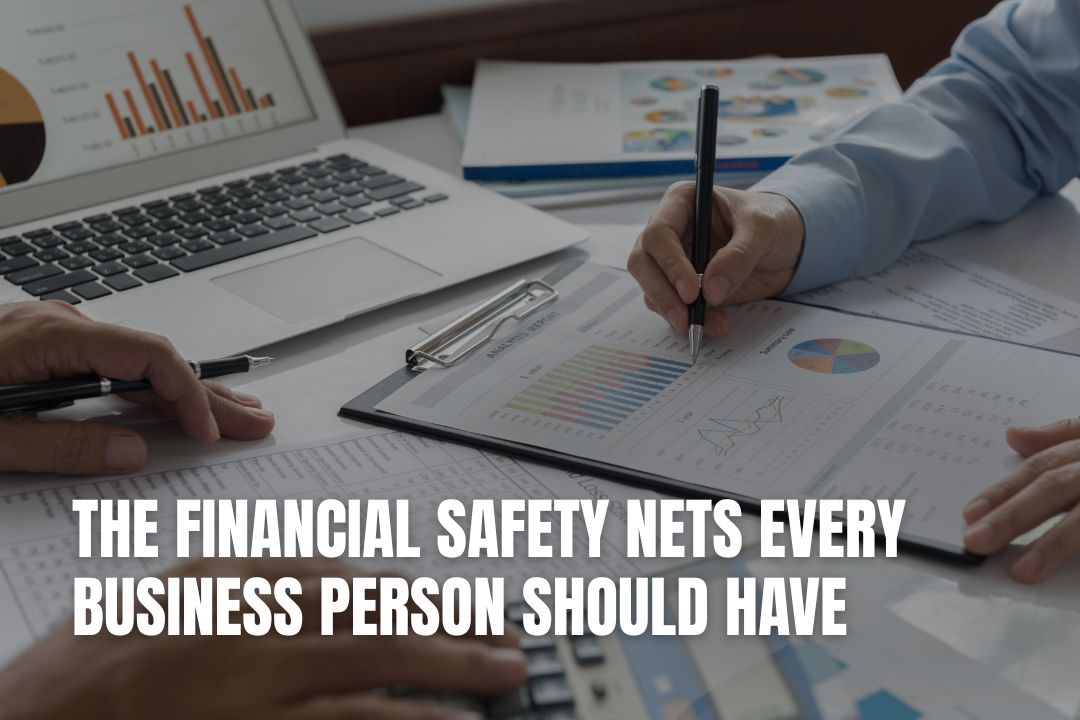
Editorial Disclaimer
This content is published for general information and editorial purposes only. It does not constitute financial, investment, or legal advice, nor should it be relied upon as such. Any mention of companies, platforms, or services does not imply endorsement or recommendation. We are not affiliated with, nor do we accept responsibility for, any third-party entities referenced. Financial markets and company circumstances can change rapidly. Readers should perform their own independent research and seek professional advice before making any financial or investment decisions.
Every business owner wants to stay afloat during the ups and downs that life often throws at them. Whether it’s because of a pandemic, a nationwide economic crisis, or a sudden shift in the market, you want to be sure your business stays both manageable and profitable - it’s all about being resilient in the face of economic and financial instability!
To manage that, you need some protection to help your business handle the hard times. Here, you’ll find the most important financial safety nets you can have as a business person. With these, you won’t have as much to worry about.
The first is obvious, but worth pointing out: having an emergency fund is key to being able to keep your business afloat while going through some kind of disaster. What happens if a cyber hack stops your business from being able to access data for some time? What about a natural disaster that leaves your work’s premises unusable for a month? In unfortunate situations like these, money matters a lot.
Generally speaking, it’s best for your business’s emergency fund to cover 3-6 months of operating costs. Also, don’t forget to keep this emergency fund in a high-yield savings account, as this means the money will go up over time, maximising the savings.
Next, it’s all about insurance. There are several types of business insurance you really should get, including:
As a business owner, it’s also worth considering personal insurance plans. For example, life cover. Your family’s wellbeing matters a lot, after all. You want to know they are well looked after with a lump sum payout upon your passing. This can even help them manage your business effectively. Find the right life insurance provider at reassured.co.uk, which allows you to compare quotes freely. The sooner, the better.
A good credit rating is essential for businesses, as it means you can easily secure financing when you need it most. Imagine going through a rough period and needing access to money – with a good credit score, you’ll manage that far easier. Plus, the interest rates you will pay will be lower.
Another financial safety net you need as a business person is a great retirement plan. When developing your retirement plan, consider things like your current savings, your retirement needs, and your goals with retirement. Naturally, those who want to spend their retirement travelling and enjoying luxuries will need to save more money.
A retirement plan will provide you with money when you retire, which is necessary. On top of that, though, saving for your retirement also provides a financial buffer in extremely dire situations when you need access to money. It could be the saviour of your business.
As a business person, you likely understand the volatility of many businesses. You don’t want to rely on only one company, so diversify your revenue. Having multiple streams of revenue will ensure you still have income even if or when one of your businesses takes a downward spiral!
You should aim to have enough money saved to cover three to six months of your business's operating expenses. This provides a solid cushion to handle unexpected events without disrupting your operations.
While several types are important, employer's liability insurance is legally essential if you have staff. Public liability insurance is also critical to protect you against claims from the public. The right mix depends on your specific business needs.
A good credit rating acts as a safety net because it improves your ability to secure loans or credit quickly and on better terms during a tough period. Lenders see you as less of a risk, which is a huge advantage when you need cash flow.
Yes, in a way. While its main purpose is for your future, a substantial retirement fund can act as a last-resort financial buffer in an extreme crisis. Knowing it's there provides peace of mind and, in dire situations, could be used to save your business.
You can start by identifying related products or services your current customers might need. You could also explore new markets or create digital products. Speaking with a business coach at a firm like Robin Waite Limited can help you identify the best opportunities for your specific situation.